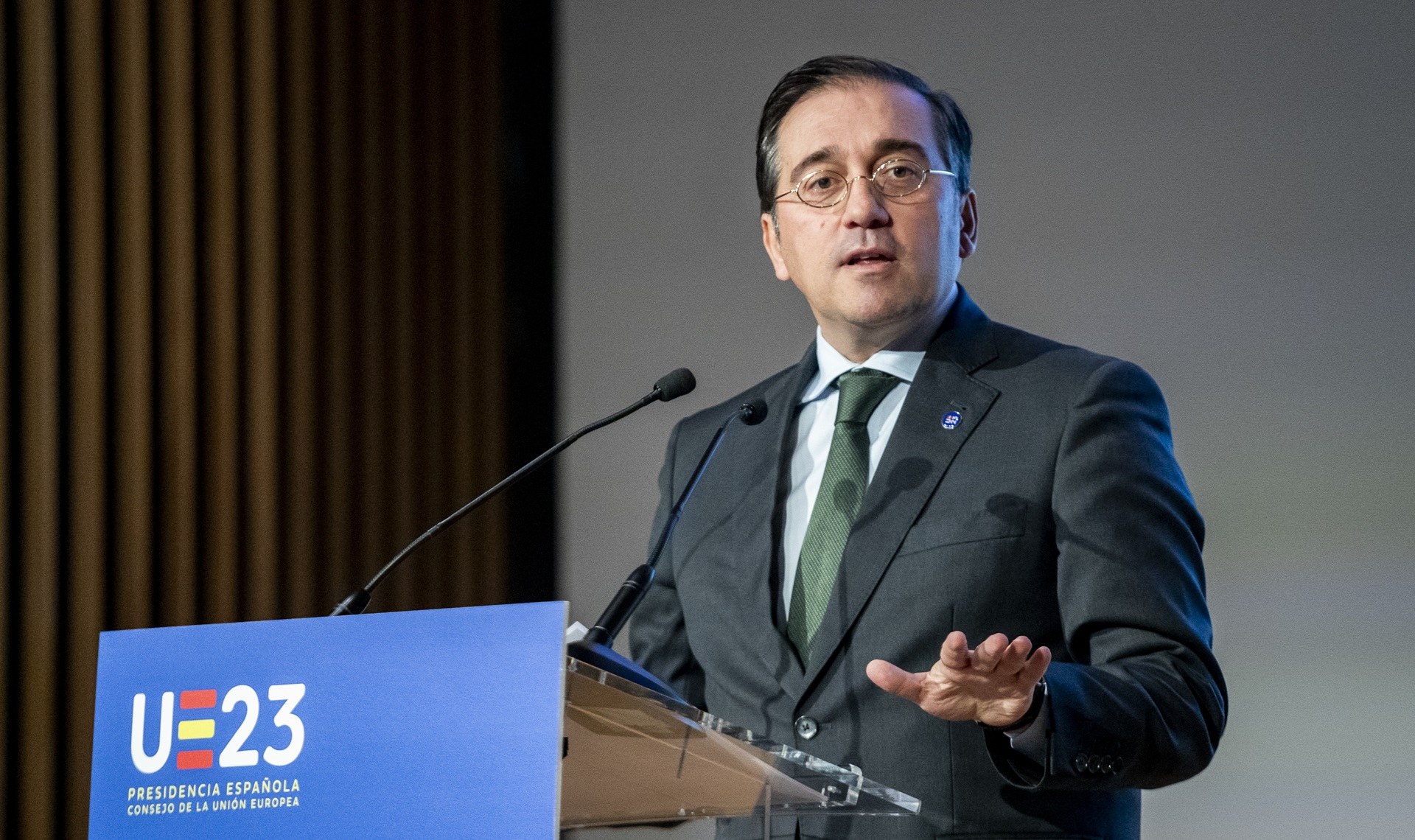The Spanish government will not attempt to hold a vote on the official EU status of the Catalan language at the upcoming meeting of the EU General Affairs Council. This has been confirmed to ElNacional.cat by sources from the Spanish foreign ministry, who argue that the ministry led by José Manuel Albares never took it for granted that this would end up being voted on this Tuesday, December 12th. "Preparing reports takes time, as we have said from day one," they point out. This Tuesday's meeting, however, is the last to be held during Spain's rotating presidency of the EU.
Thus, the Spanish government has rejected the holding of a vote on the issue at the General Affairs Council meeting this Tuesday, as the newspaper Ara has reported. While this does not mean that the topic will not be debated, it is now certain that the Spanish government will miss the last opportunity it had to push forward the official status of Catalan, Galician and Basque while holding the rotating presidency of the EU, which ends at the end of the year. This is a measure which, in the end, needs a green light from all 27 EU member states, and although no national leader has so far opposed it head-on, the initiative generates misgivings, which is why the Spanish executive has not yet been able to establish EU official status for these three of its "co-official languages", so-called because in certain parts of the Spanish state they all hold official status alongside Spanish.
The most recent proposal that the Spanish government has made to try to convince the rest of its EU partners to standardize the use of Catalan, Basque and Galician in Europe is to amend the linguistic regime of the European Union by adding a series of essential conditions for any new language to be included in the EU linguistic regime. New EU languages would have to originate in and have constitutional recognition in the proposing member state, be working languages in the national parliament, have been used for periods of time by the EU in different regards, and the state requesting their officialization would have to assume the cost.
These changes were proposed to allay the concerns of other states over a possible contagion effect if the communities and advocates of other minority languages in Europe were to try to claim their rights within the club of states. But the rest of the EU partners expressed some irritation over this plan, not for its content, but because Spain circulated the proposal only a few hours before the last meeting was held.
Sources from the Spanish foreign ministry have always assured this newspaper that the officialization of Catalan, Galician and Basque in Europe is a "commitment" of the Spanish government with the pro-independence parties. However, it needs to be kept in mind that it is a demand that Junts and ERC made to the Spanish Socialists (PSOE). As much as the Spanish government insists that it is optimistic that Europe will eventually grant full official use of these three languages, the sources consulted insist that "we can't run any faster", and that it's better to achieve a watertight agreement before advancing to the vote than to submit the proposal again without being sure that no state will vote against it.

